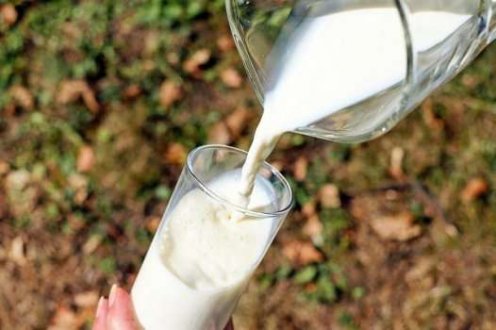Plant-Based Milk Alternatives
Plant-Based Milk Alternatives. There are several plant-based milk alternatives. We’ll talk about soy milk, oat milk, and rice milk. Each has its advantages and disadvantages, so make an informed decision. Also, consider whether you and your family have any food allergies.
Soy milk
Plant-based milk alternatives to soy milk are a great alternative to dairy products. They are high in protein and low in saturated fats. As a bonus, they don’t contain cholesterol or lactose. In addition to their lower calories, plant-based milks are also fortified with vitamins.
However, it’s important to note that plant-based milks may still be laden with environmental problems. While many farmers are claiming that soy milk is healthier, the majority of it is actually genetically modified (GMO) and sprayed with herbicides.
GMO soy is mostly fed to livestock, but it’s possible to buy organic soymilk, which isn’t affected by the genetic modification. Despite this concern, the production of plant-based milk alternatives has increased dramatically in recent years.
Today, you can find plant-based milk alternatives at nearly every grocery store and many coffee shops.
Oat milk
Oat milk is a healthier choice than traditional cow’s milk because it contains no animal-derived ingredients. In addition, oat milk does not contain trans fats. Both animal and non-animal trans fats are associated with negative health outcomes, including inflammation, cardiovascular disease, and type 2 diabetes.
Oat milk is also naturally free from dairy, lactose, soy, and nuts. It also tends to have a lower amount of protein than cow’s milk. However, some varieties may contain carrageenan, which is an inflammatory agent that can aggravate inflammatory bowel disease and ulcerative colitis.
Nonetheless, oat milk is a great option for people who are gluten-sensitive or celiac.
Pea milk
Pea milk is one of the plant-based milk alternatives, and it has similar properties to soy milk. It has a creamy consistency and a sweet flavor, and has about the same amount of calories. Pea milk is also high in protein, with almost 9 grams of protein per cup. It has a smaller carbon footprint than dairy and is an excellent alternative for people who don’t want to give up dairy.
Pea milk is rich in important phytonutrients, including flavonoids and tannins. It is hypoallergenic and has a favorable effect on gut health and blood pressure. Pea milk also contains significant amounts of magnesium and zinc.
Pea milk contains more of these essential minerals than soy milk, making it a good choice for people with food allergies or active lifestyles.
Rice milk
If you are looking for a dairy-free alternative to rice milk, there are plenty of options available. Not only are they healthier than dairy, but they also tend to contain fewer calories and sugars. To learn more about plant-based milk alternatives, Health Shots spoke with Dr. Deepti Lokeshappa, Senior Consultant-Clinical Nutritionist at Motherhood Hospital.
One of the most popular plant-based milk alternatives is rice milk, which is made from rice. It is the least allergenic of the alternatives to dairy milk and is therefore a good choice for people with allergies or lactose intolerance. Additionally, it is fortified with calcium and vitamin D.
However, there are some downsides to rice milk, including a higher concentration of inorganic arsenic than most other milks. In addition, the American Academy of Pediatrics and Food and Drug Administration both warn against the consumption of rice products, and rice milk is not a good choice for babies with severe allergies.
Peas
Pea milk is a popular plant-based milk alternative, and it provides a great nutritional profile. Made from yellow split peas, pea milk is high in protein and low in calories, and is also available in powder form.
Pea milk is very similar to dairy milk in taste and texture, and is fortified with vitamins, calcium, and potassium. Pea milk is also more environmentally friendly than dairy milk, using less than 25% of the water required to produce it.
Various plant-based milk alternatives are produced using sophisticated production methods and are intended to mimic dairy milk.
However, the National Milk Producers Federation has objected to the labeling of some plant-based beverages as “milk,” because the federal definition of the term requires a product to come from a lactating animal. Still, many plant-based products are marketed as “milk” or “mylk.”
Soy beans
Soy beans as plant-based milk alternatives are a healthful alternative to bovine milk. These milk alternatives are lactose-free, cholesterol-free, and low-calorie. They are made by dissolving the plant material into small particles.
The size of the particles varies and depends on the type of raw material and processing methods. The final product must be stored properly to maintain its health benefits.
Soymilk is considered the first plant-based milk alternative and has been around for more than a century. It’s become more popular because it offers a similar nutritional profile to cow’s milk.
Soybeans have their roots in Asia, but they’re now grown worldwide, including the U.S. Soymilk is made from soybeans that are pressed and blended with other ingredients.





Pingback: The 1 Best Yogurt Combination To Prevent Your Bones From Aging - Health